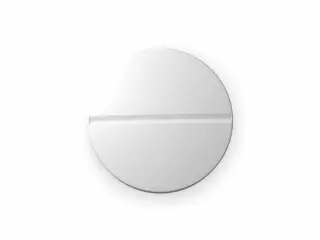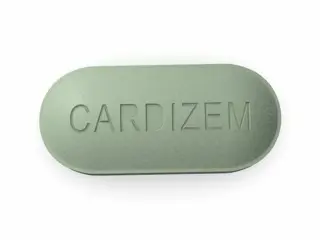Cardiovascular

Discover a wide range of cardiovascular medications and supplements designed to support heart health, improve circulation, and manage blood pressure. Shop trusted brands to help maintain a healthy cardiovascular system and promote overall well-being.
The cardiovascular category includes medications that help manage heart and blood vessel conditions. These drugs are vital for treating high blood pressure, irregular heartbeats, blood clots, heart failure, and other related diseases. Understanding how these medications work can help patients take control of their health and reduce risks.
Altace (ramipril) is an ACE inhibitor. It helps relax blood vessels, lowering blood pressure and improving blood flow. This reduces the chance of heart attacks and strokes. Altace is often prescribed for people with high blood pressure or heart failure. It also protects the kidneys in patients with diabetes. Side effects can include cough, dizziness, and fatigue, but it is generally well tolerated.
Cardarone and Cordarone (amiodarone) are the same medication used to treat serious irregular heartbeats (arrhythmias). They help maintain a normal heart rhythm. Amiodarone is effective in preventing life-threatening arrhythmias but can cause side effects such as thyroid problems, lung issues, and skin changes. Regular doctor visits are important for monitoring while on this drug.
Cardizem and Cartia XT both contain diltiazem. This calcium channel blocker relaxes the heart and arteries, lowering blood pressure and controlling chest pain (angina). It also helps slow a rapid heartbeat. These medications are useful for hypertension and certain arrhythmias. Common side effects may include swelling, headache, or dizziness.
Coumadin (warfarin) is a well-known blood thinner. It stops harmful blood clots from forming. Coumadin is commonly used after heart valve surgery, for atrial fibrillation, and to prevent stroke. Its use requires frequent blood tests to avoid bleeding risks. It interacts with many foods and medications, so careful management is needed.
Lanoxin (digoxin) strengthens the force of the heart muscle. It also helps control heart rate in conditions like atrial fibrillation. Lanoxin is used in heart failure patients to improve symptoms. Monitoring levels in the blood is important because doses must be precise. Side effects include nausea, vision changes, and irregular heartbeats if levels are too high.
Lisinopril is another ACE inhibitor. Like Altace, it lowers blood pressure and protects the heart and kidneys. It is often the first choice drug for hypertension. Side effects mostly include cough and dizziness. It is beneficial for patients with diabetes and heart failure as well.
Micardis (telmisartan) belongs to a class called angiotensin receptor blockers (ARBs). It helps relax blood vessels and reduce blood pressure. Micardis offers protection for the heart and kidneys. It is an alternative for those who cannot tolerate ACE inhibitors. Common side effects include dizziness and back pain.
Nimotop (nimodipine) is a calcium channel blocker primarily used to prevent brain damage after subarachnoid hemorrhage, a type of brain bleed. It improves blood flow in the brain's arteries. Nimotop must be taken carefully as low blood pressure can occur. It shows how cardiovascular medications can also protect the brain.
Plavix (clopidogrel) is an antiplatelet agent. It prevents platelets from sticking together and forming clots. Plavix is used after heart attacks, strokes, and in coronary artery disease. It reduces the risk of blockage in stents and arteries. Bleeding is the main risk, so patients must inform doctors before surgeries or dental work.
Samsca (tolvaptan) is used to treat hyponatremia (low blood sodium), often caused by heart failure or liver disease. It helps the kidneys remove excess water without losing much sodium. Samsca improves water balance and reduces fluid overload. Careful monitoring of electrolytes and kidney function is necessary during treatment.
All these medications play vital roles in treating cardiovascular conditions. Their use improves longevity and quality of life. However, they require proper guidance and regular check-ups. Patients should follow doctors' instructions and report any unusual symptoms immediately. Combining medication with lifestyle changes like diet and exercise optimizes heart health.
Each drug has unique benefits and risks. Understanding them empowers patients to manage their heart conditions better. The cardiovascular category in online pharmacies covers these essential drugs, making access easier for those in need. Careful selection and use ensure positive outcomes for patients dealing with cardiovascular diseases.










